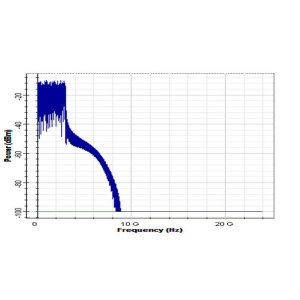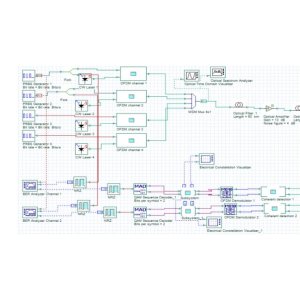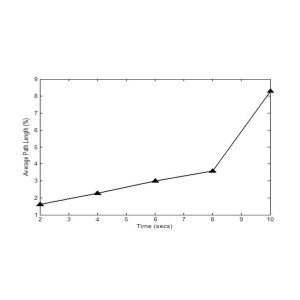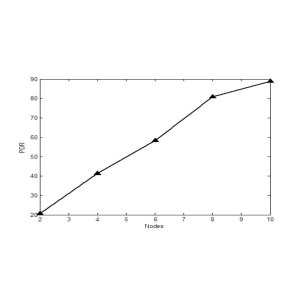Coherent OFDM-PON Downstream Transmission with Dispersion Compensation
Problem Definition
PROBLEM DESCRIPTION:
Despite the advancements in OFDM-PON communication systems using m-QAM mapping, the downstream transmission still faces challenges related to data rate efficiency, subcarrier utilization, and channel capacity. These issues hinder the overall performance of the system and limit its capability to meet the increasing demand for high-speed data transmission. Current systems are not able to fully utilize the available spectrum and are unable to achieve the desired data rates in an efficient manner.
In order to address these challenges, a novel approach is required to enhance the downstream transmission in OFDM-PON systems. The proposed project aims to design a dispersion compensated model for coherent detection in OFDM-PON downstream transmission.
By introducing the concept of dispersion compensation, the project seeks to improve the system's performance in terms of data rate, subcarrier utilization, and channel capacity.
The research will focus on developing a model that optimizes the use of subcarriers in CO-OFDM for downstream transmission, ultimately increasing the efficiency and capacity of the system. By overcoming the limitations of current systems, the project aims to provide a solution that can meet the growing demands for high-speed data transmission in a more effective manner.
Proposed Work
The research work titled "A dispersion compensated model design for coherent detection in OFDM-PON downstream transmission" focuses on improving the performance of coherent optical OFDM (CO-OFDM) systems for long haul transmission, specifically in the downstream transmission. Previous OFDM-PON communication systems using m-QAM mapping have been found to be less efficient in terms of data rate, subcarriers, and channel capacity. In this proposed work, a novel approach is introduced to address these issues, incorporating the concept of dispersion compensation. By analyzing the system's performance at the highest data rate, the research aims to enhance the efficiency of OFDM-PON systems for improved downstream transmission. This project falls under the categories of Latest Projects, M.
Tech | PhD Thesis Research Work, and Wireless Research Based Projects, with specific subcategories focusing on OFDM-based wireless communication research. The software module used for this research is OFDM.
Application Area for Industry
The proposed project on designing a dispersion compensated model for coherent detection in OFDM-PON downstream transmission can be applied in various industrial sectors such as telecommunications, data centers, and networking industries. In the telecommunications sector, where high-speed data transmission is crucial, this project's solutions can help address the challenges related to data rate efficiency, subcarrier utilization, and channel capacity in OFDM-PON systems. By optimizing the use of subcarriers in CO-OFDM for downstream transmission, the system's efficiency and capacity can be increased, ultimately meeting the growing demands for high-speed data transmission more effectively.
Furthermore, in data centers and networking industries, where efficient and high-performance communication systems are essential for smooth operations, implementing the proposed solutions can lead to improved overall system performance. By overcoming the limitations of current systems and enhancing the efficiency of OFDM-PON systems, this project can provide significant benefits in terms of increased data rates, better subcarrier utilization, and improved channel capacity.
Overall, the project's focus on dispersion compensation for coherent detection in OFDM-PON downstream transmission can bring about positive impact and advancements in a wide range of industrial domains.
Application Area for Academics
The proposed project on designing a dispersion compensated model for coherent detection in OFDM-PON downstream transmission offers a valuable opportunity for MTech and PhD students to engage in innovative research methods, simulations, and data analysis for their dissertations, theses, or research papers. This project is particularly beneficial for students and scholars in the field of wireless communication research, focusing on OFDM-based systems. By addressing the challenges related to data rate efficiency, subcarrier utilization, and channel capacity in OFDM-PON systems, this research provides a platform for exploring advanced techniques in optimizing system performance. MTech students and PhD scholars can utilize the code and literature generated from this project to further enhance their understanding of CO-OFDM systems and investigate new avenues for improving downstream transmission efficiency. The future scope of this project includes exploring the application of dispersion compensation techniques in other optical communication systems to enhance data transmission capabilities.
Overall, this research project offers a relevant and practical framework for pursuing impactful research in the field of wireless communication, benefiting both students and the industry as a whole.
Keywords
OFDM-PON, m-QAM mapping, downstream transmission, data rate efficiency, subcarrier utilization, channel capacity, dispersion compensation, coherent detection, CO-OFDM, long haul transmission, high-speed data transmission, spectrum utilization, system performance, subcarrier optimization, efficiency improvement, high data rate, wireless communication research, OFDM software module.
| Shipping Cost |
|
No reviews found!

























































No comments found for this product. Be the first to comment!